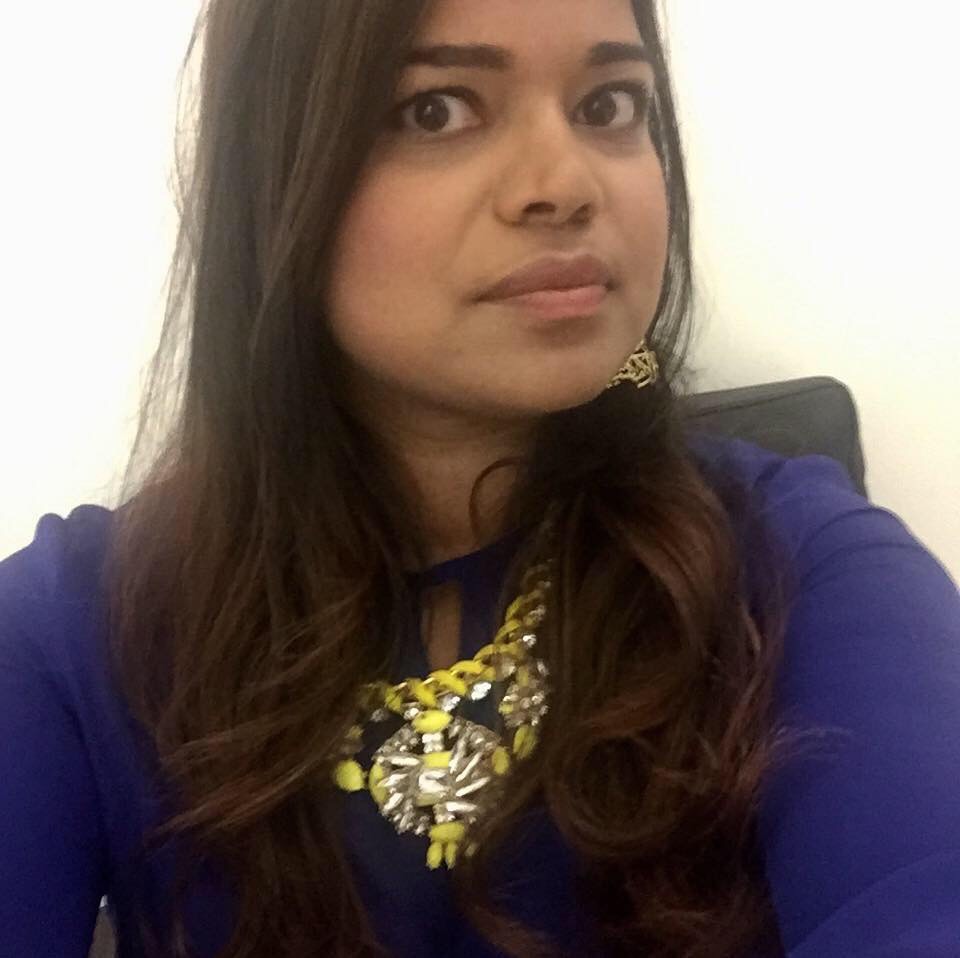As Sahiyo’s U.S. operations and programs have grown, in 2018, we invited various individuals from a host of backgrounds and professions to join our inaugural U.S. Advisory Board. The advisory board provides strategic advice to the management of Sahiyo and ensures that we continue fulfilling our mission to empower communities to end Female Genital Cutting and create positive social change through dialogue, education, and collaboration based on community involvement.
This month, we are pleased to highlight Maryum Saifee, who has graciously agreed to serve as the Chair for our inaugural U.S. Advisory Board.
1) Can you tell us a bit about your background?
I was born and raised in Texas and the product of Indian immigrant parents. Like many South Asian-Americans, my parents were baffled when I strayed from the script (pursuing a medical degree to eventually take over my mom’s practice) and opted for an unpredictable career in public service. My first act of rebellion was joining the Peace Corps at nineteen. I worked in a small village just north of the Dead Sea in Jordan. In my two years there, I became interested in the impact of U.S. foreign policy in the Middle East. When I came home from Jordan, I served as an AmeriCorps volunteer working with South Asian survivors of domestic violence and educating school administrators in Seattle on the impact of post 9-11 anti-immigrant backlash. Just over ten years ago, I joined the U.S. foreign service where I spent more time in the Middle East serving in Cairo (during the 2011 Arab uprising), Baghdad, and most recently Lahore. I was also proud to serve as a policy advisor in the Secretary’s Office of Global Women’s Issues leading the U.S. government’s efforts to address and respond to gender-based violence (including bringing about an end to Female Genital Mutilation) globally.
2) When did you first get involved with Sahiyo and what opportunities have you been involved in?
I first became involved with Sahiyo when I worked in the Secretary’s Office of Religion and Global Affairs in 2015. I organized panel discussions at the United Nations during key moments (the Commission on the Status of Women and International Day of Zero Tolerance) as well as at large-scale civil society convenings like the Islamic Society of North America’s annual convening. Sahiyo was (and continues to be) a powerful force for social change. Prior to Sahiyo’s existence, FGM was framed as a faraway problem restricted to sub-Saharan Africa. However, over the last few years there is a greater understanding that FGM is global in scope and not only occurring in South and Southeast Asia but communities all over the world. I have been honored to serve as Sahiyo’s first advisory board chair and hope to help the organization continue making a strong impact.
3) How has your involvement impacted your life?
Sahiyo is a powerful platform pushing for long-term social change. Despite backlash and pushback, the organization continues its work and has given survivors like me the opportunity to forge bonds of solidarity with others fighting against FGM.
4) What pieces of wisdom would you share with new volunteers or community members who are interested in supporting Sahiyo?
I would say to try and stay upbeat even when there are challenges. Changing mindsets won’t happen overnight, but it will happen in time. My advice is to be patient and stay focused on the end goal. And in the meantime, make sure to practice self-care to avoid burnout.

